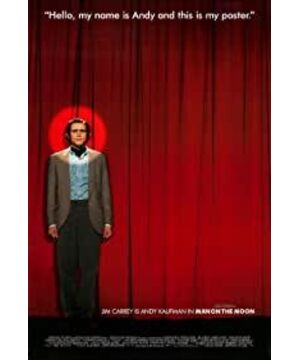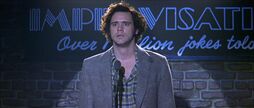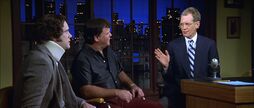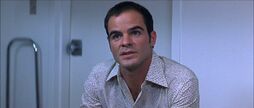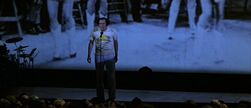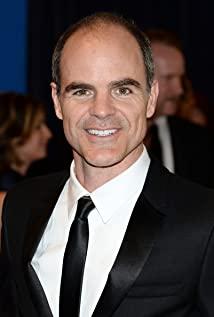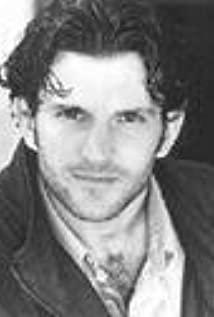——Comment on the audio-visual language and scene scheduling of "The Man on the Moon"
It is not so much that Andy is always crazy hysterically playing a funny character in the film, rather it is that this film always uses Andy's madness and hysteria to portray his loneliness and incomprehension. So that the film is permeated with a sad and sad texture.
This kind of sorrow and sorrow comes from his incomprehension from the beginning to the end. When transitioning through the sound, the memories of Andy's childhood are transferred to the reality of his performance on the stage. He is located at the golden section to the right of the lens, the spotlight is on him, and the audience in the foreground is black and red. The two distinct colors of light and darkness, white and black, seem to imply that Andy has never been recognized by the audience, whether it is when he was still in despair before he became famous, or when he was known and sought after by everyone. When the bar owner thought about dismissing Andy, the camera shot the boss with a close shot from Andy's shoulders, and then a reverse shot was aimed at Andy. Fourteen times back and forth, Andy's very powerful acting performance. A person went from faintly excited to unbelievable to frustrated and disappointed. And as the door opened and the camera moved forward, Andy showed a playful smile, and then the camera shook Andy walked forward briskly, carrying the box. This series of actions and shots shows the audience that Andy is not understood and his eccentric character. This is still not understood by people. After Andy's comical performance became famous, it was enlarged several times and then revealed. When Andy was forced to perform on stage because of a five-year contract to perform a show he didn't like, the camera cheered the audience. They wanted Andy to perform the role they wanted to watch, but it seemed to be a revenge mentality, Andy read aloud Up (the great Gatsby). The camera switched back and forth in front of Andy and the audience. The audience yelled impatiently to watch him play a funny role, and then the camera gave Xiang Andy's eyes that kept shaking. He fulfilled the needs of the audience and played that role. In the lens, the audience stood up and cheered wildly, but the seemingly lively atmosphere formed a strong contrast with Andy's inner dissatisfaction, which seemed very sad and sad. At the end of this scene, Andy rubbed his eyes and finally finished reading the book. The camera shot towards the audience, where there were a handful of people sitting sparsely. It seemed that no one was willing to accept his revenge, and no one understood. His pursuit, his purity. The next shot took a panoramic view of Andy and the audience from a low camera behind the scenes. The audience under the lights began to leave the scene, and Andy, who was supposed to be in the spotlight, did not have any light on his face at this time. He changed It got blurred, step by step, hidden into the darkness.
His sorrow and sorrow came from the fact that he deceived so many people, but in the end no one believed him. When he solemnly told his friend that he had cancer, the camera turned to a stall of his friend, saying don’t make trouble, don’t make trouble, and there was another giggle, saying that this could be a script. His grief also came from the people he had deceived for so long, but in the end he could only be forced to accept being deceived by others. When the plane landed and the car drove towards the place where the genius doctor was, the camera zoomed backwards and then slowly shook to show us the picture of the clinic where the genius doctor was, and finally stopped at Andy's thin back, curled up in a wheelchair. In the next second, the camera shot at Andy with a close-up shot, and then with Andy's point of view lens to show us how the genius doctor creates "miracles". It seems to be telling the audience that Andy has a chance to be saved. And when Andy lay down and turned his head to the doctor's "washing" hand, the camera gave a close-up to tell Andy and also told us that miracles do not exist. In the camera, Andy's unbelievable face shifted down to the doctor's hand holding the fake organ, and everything seemed particularly ironic, and even more sad and sad.
But this kind of grief is sorrow and not hurt. After the Christmas party, soft and long music sounded, and Andy was surrounded by the crowd. As the camera slowly moved up, he shouted excitedly, everyone had milk snacks. The next second the camera cuts towards the room, everyone is excited to find their respective positions, then the camera slowly moves down and pulls back, everyone cheers and claps their hands to look at Andy. Then the camera cuts to the point of view of the viewers in the crowd, and Andy is extremely happy amidst the cheers of the crowd, happy from the heart. And after Andy knew he was deceived, he lay on the bed and let out a crying smile, and then the overlapping paintings cleverly cut into Andy's funeral. The camera slowly pulled back, and Andy's live video was played at the funeral. He was excited to interact with the audience, telling them that the world is beautiful. So that his death makes people sigh, but feels sad but not hurt. Andy always plays the role of a mocker in this world to fool others, but when he died, he also showed that he and Different ways of expressing tenderness.
Irritable but also very gentle, hysterical but with her own pure persistence. The moon symbolizes idealism, cruel, sad but also beautiful. Andy seems to have been sitting on the moon, glowing with his unique sad but not hurtful light.
View more about Man on the Moon reviews


